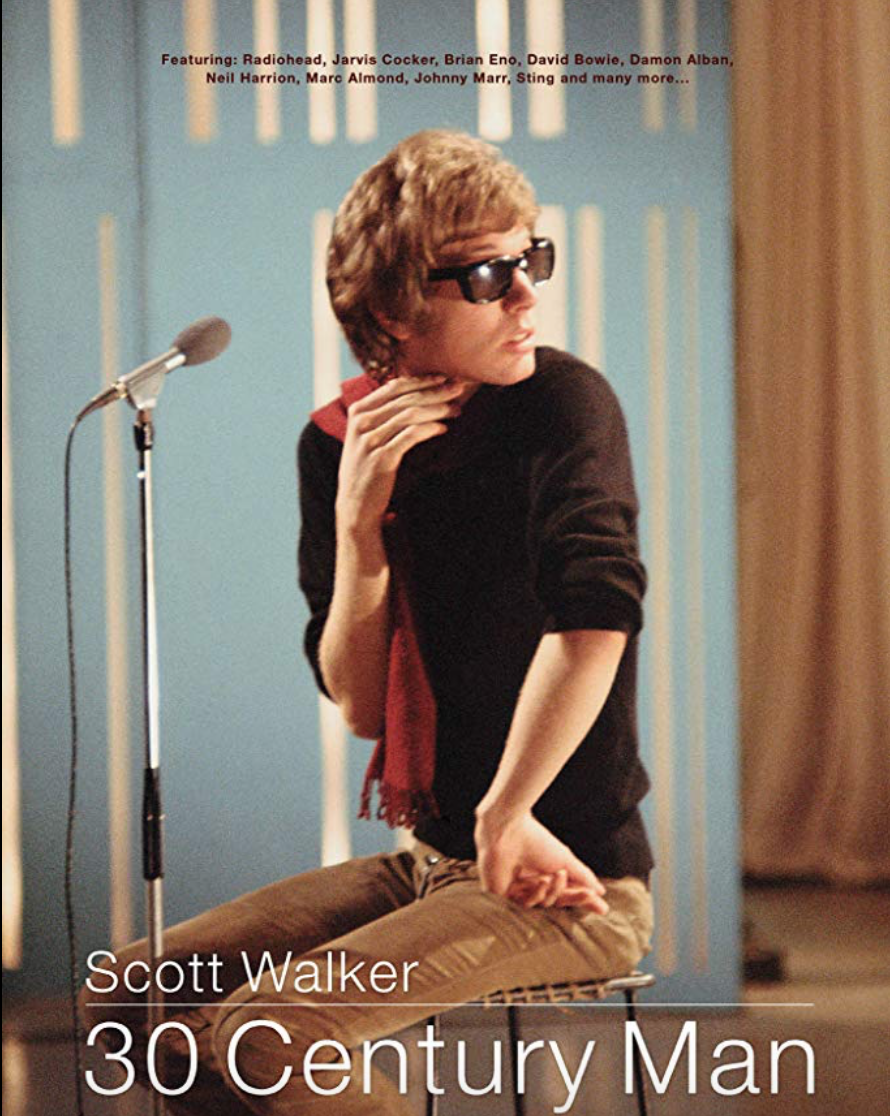|
Stephen Kijak, director of Scott Walker: 30 Century Man, tells Nonfictionfilm.com "He set the bar, and sharpened the edge: who is left to challenge us like he did?"
Note: this piece has been updated with a statement from director Stephen Kijak
Singer-songwriter Scott Walker, who became a pop sensation in Britain in the 1960s and later an influential avant garde recording artist, died Monday at the age of 76. He was the subject of the 2006 documentary Scott Walker: 30 Century Man directed by Stephen Kijak and executive produced by David Bowie, one of the performers Walker influenced with his work.
His record label, 4AD, announced his death in astatement on the company website. "For half a century, the genius of the man born Noel Scott Engel has enriched the lives of thousands, first as one third of The Walker Brothers, and later as a solo artist, producer and composer of uncompromising originality," 4AD wrote. "Scott Walker has been a unique and challenging titan at the forefront of British music: audacious and questioning, he has produced works that dare to explore human vulnerability and the godless darkness encircling it." In a statement provided exclusively to Nonfictionfilm.com, Kijak shared his thoughts on Walker's passing: It is hard to believe Scott is gone. The great explorer, as Jarvis Cocker called him in the film I directed about Scott and his work, forging ahead into the unknown for us who may not have the will to go there ourselves – an unknown of sonic spaces, lyrical spaces, that forged worlds unlike those we had ever really heard before, taking us into vast new landscapes and leaving us to wander forever. I could listen to those songs forever and always find some new joy or terror there. He set the bar, and sharpened the edge: who is left to challenge us like he did? Making a film about him, watching him work, observing him explore his ideas with intensity and humor and humility - it was a profound experience and the greatest honor of my life.
Walker was born in Ohio, but earned most of his renown in Britain, reversing the direction of the British invasion that brought the Beatles, the Rolling Stones and The Who to the U.S. He eschewed fame and success and concentrated on innovative compositions that drew the attention of Bowie and other artists. He could use his rich baritone to eerie, disturbing effect in songs that defied the limited emotional range and subject matter typical of most pop (young love, rebellion, etc.).
Bowie appeared in Kijak's documentary (incongruously wearing a blue and white-striped polo shirt, rather at odds with any of the rock personae he embodied).
Scott Walker: 30 Century Man, distributed by Oscilloscope, is available for rent or purchase through the O'Scope website (and via YouTube). O'Scope writes of the film, "Scott Walker: 30 Century Man shows a rare glimpse into the creative world of the most enigmatic figure in rock history. Tracing the undeniable impact Scott Walker has had on popular music through casual interviews with some of his biggest, highest profile fans, we explore his fascinating trajectory."
|
AuthorMatthew Carey is a documentary filmmaker and journalist. His work has appeared on Deadline.com, CNN, CNN.com, TheWrap.com, NBCNews.com and in Documentary magazine. |
- Home
- News
- Videos
-
Galleries
- 2019 Tribeca Film Festival
- Full Frame Documentary Film Festival
- 2019 SXSW Film Festival
- SXSW 2018 Gallery
- 2019 Sundance Film Festival
- Outfest 2018 Photo Gallery
- Outfest 2017
- Sundance 2018 Photos
- 2017 LA Film Festival
- 2017 Cannes Film Festival
- Tribeca Film Festival 2017
- SXSW 2017 Gallery
- 2017 Berlin Film Festival
- Sundance 2017 Gallery
- 2016 Los Angeles Film Festival
- Cannes Film Festival 2016
- SXSW 2016 Gallery
- Berlinale 2016 Gallery
- Sundance 2016 Gallery
- Filmmaker Gallery
- About
- Contact
Proudly powered by Weebly
- Home
- News
- Videos
-
Galleries
- 2019 Tribeca Film Festival
- Full Frame Documentary Film Festival
- 2019 SXSW Film Festival
- SXSW 2018 Gallery
- 2019 Sundance Film Festival
- Outfest 2018 Photo Gallery
- Outfest 2017
- Sundance 2018 Photos
- 2017 LA Film Festival
- 2017 Cannes Film Festival
- Tribeca Film Festival 2017
- SXSW 2017 Gallery
- 2017 Berlin Film Festival
- Sundance 2017 Gallery
- 2016 Los Angeles Film Festival
- Cannes Film Festival 2016
- SXSW 2016 Gallery
- Berlinale 2016 Gallery
- Sundance 2016 Gallery
- Filmmaker Gallery
- About
- Contact


 RSS Feed
RSS Feed